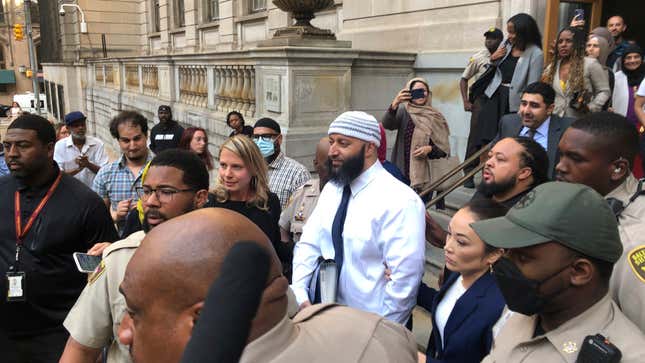Adnan Syed’s Conviction Is Overturned, but an Old Wound Re-opens for Hae Min Lee’s Family
Our justice system is broken in such an outstanding way that one person's exoneration still inflicts pain on someone else.
EntertainmentEntertainment

On Monday afternoon, a Baltimore judge ruled to vacate Adnan Syed’s conviction for the 1999 murder of Hae Min Lee. Syed, the subject of the groundbreaking 2014 podcast Serial, had been sentenced to life in prison, served 23 years behind bars, and has attempted numerous times to have his case appealed. He has always maintained his innocence.
Last year, Syed’s new lawyers reopened the case and discovered “significant reliability issues” in the evidence used in the original 2000 trial; prosecutors had failed to turn over evidence regarding credible suspects to the defense. Prosecutors now have 30 days to decide on either conducting a new trial or dropping the case against him.
-

-

-

-

-

-

-

-

-

-

-

-

-

-

-

-

-

-

-

-

-

-

-

-

-

-

-

-

-

-

-

-

-

-

-

-

-

-

-

-








































